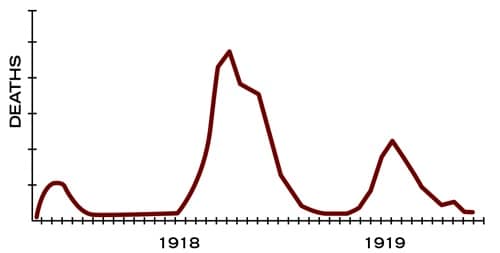FTFY. Wilson was only idealistic about white people’s rights, man didn’t give a shit about Mexicans, blacks, or anyone else (part of the reason for the 1915 intervention in Haiti was because he didn’t want blacks at home getting “ideas” about pesky things like constitutional rights.
I know, that's why I said his idealism was 'schizophrenic'. Peoples like the Czechs and Armenians may have benefited from his presence at Versailles, but the likes of the Arabs and Chinese sure didn't see a whole lot of his supposed benevolence and commitment to democracy at the same talks, nor did the various Latin Americans and Haitians whose countries he invaded to bring 'order' and 'democracy' to.
The Philippine War featured 126,000 American soldiers deployed to fight the insurgency, so yes, it was lower in raw terms but in terms of proportion it was not in comparison to what would be needed to occupy Mexico. The Philippines in 1900 had 6.5 Million, which means the 126,000 Americans resulted in a ~50:1 ratio, the same proposed for Mexico with 14.3 Million and 290,000 Americans. The material basis for sustaining such a force long term is, I think, also good. In 1919, Army Chief of Staff Peyton Marsh proposed a standing force of 500,000 men, with Congress ultimately approving a force of roughly 290,000 in 1921. This was without a conflict with Mexico to establish a firm need for more, nor with a militaristic President to help push it through Congress by cheerleading it with the backing of the already existing war faction.
Beyond the basic material pre-conditions of a conventional phase followed by an effective occupation, there are other factors to consider. One major factor of U.S. success in both the Banana Wars as well as the Philippines was the American ability to limit outside assistance to the insurgencies, which mean limited supplies of weapons, funds, and obviously no training of guerilla forces could occur. This would hold true for Mexico especially, given the U.S. Navy controls the Americas firmly and Mexico's land borders are either with the United States itself or client regimes in the case of Central America. With American Armies holding the cities and outside aid impossible, any insurgency will rapidly die off for lack of an ability to logistically sustain itself. Outside of the local specifics, one also has to ask who would be willing to do so in the first place? The German Empire is no longer around and the RSFSR is currently fighting for its life. Japan maybe would have some interest, but the logistics aren't there because they literally don't have the bases to do such.
Moving beyond the material aspects, I also think American morale would be pretty solid here. If the American public could stomach an Imperialist conflict of conquest in the case of the Philippines from 1898 to 1913, I don't see why they couldn't for Mexico. The economic incentives are there; besides the obvious captive market attraction, the Philippines was viewed as a means to an end to expand trade with China while several American oil companies desired to protect their vested interests in Mexico. Besides the economic-which also drove the Banana Wars in the 1920s-there are also deeper, nationalistic concerns at play. For one, Mexican Revolution had resulted in quite a bit of spill over that resulted in hundreds of dead Americans, and this was a particularly contentious point for many Americans. After all, had the U.S. not went to war with Germany over an equal crime in contemporary times? Just as American economic exploitation had engendered Anti-Americanism within Mexico, the same had occurred on the opposite side of the border, as evidenced by some of the political figures and others I quoted in the OP.
There was also national security concerns at play to. While we have the benefit of hindsight to say the Mexican Revolution was not Marxist, the perception, as cited from the source material, was to the opposite in the contemporary timeframe. Congress was producing allegations and material to suggest Bolsheviks were in control or, at least, deeply influential within Mexico. This had wide dissemination among the American public, and also came as it did in the First Red Scare. That this fear carried on in the form of the Palmer Raids and a refusal to recognize the USSR until the 1930s, is well known. A direct conflict, instigated upon the basis of these beliefs in part, would only deepen said beliefs in my estimation.
Even assuming a more overtly imperialistic president than Harding got elected in 1920, is that really any guarantee that Congress would be willing to approve a military almost twice the size of what existed IOTL? To my understanding the Republicans had held the House since 1916 and the Senate since 1918, but the prevailing mood within the party itself was isolationism, especially with the conservative wing that had regained ascendancy over the TR-esque progressives. If the Republicans themselves weren't so averse to expensive foreign entanglements, they probably wouldn't have been so determined to scrap Wilsonian foreign policy in favor of as much of a reversion to splendid isolation as possible. And just because Leonard Wood himself is a Republican isn't a guarantee that Congress would go along with his demands for a stronger military, since if I remember rightly, his candidacy was opposed by those ascendant conservatives and supported by the declining progressives.
I don't think lack of foreign support would be
fatal to any Mexican insurgency. They have quite a bit of relevant experience in both conventional and irregular warfare, they have the numbers and motivation, and in the case of the Zapatistas of the south they've already shown their ability to survive, and even thrive, despite a complete lack of a sophisticated war industry (as Mexico's southern provinces were their poorest and least industrialized, and the Zapatistas were an agrarian and consequently entirely rural-based movement which spent the Revolution fighting out of mountains and jungles). Yeah, the Americans' superior firepower and industrial might will let them grind the Mexicans into dust eventually, but I don't think it'd be a remotely 'rapid' victory and in all honesty it would probably take longer than the American public was willing to put up with. Even the Haitian cacos and Nicaraguan rebels kept coming back for more for years, and these were forces far smaller and less experienced than the Zapatistas, Villistas, etc.
Also as you say, there are other factors to consider than the purely military ones (as there always are when it comes to insurgency), and I notice you've yet to address the big one I brought up previously - the factor of Mexican politics. I must ask again, who do you think the Americans can trust to helm their Mexican puppet government? It must be someone who can (as Stevep described in an earlier post) simultaneously satisfy American demands while retaining enough domestic legitimacy to not actually be perceived as a total American lackey, since otherwise the Americans might as well just assume direct control and annex Mexico themselves. Of course the problem is that no such figure exists by 1919-20, as far as I'm aware:
Felix Diaz is the most powerful conservative around but his tiny army hasn't been relevant for four years (and his main field commander,
General Blanquet, is hated almost as much as his former superior Huerta was), the future Cristero leadership are still obscure parish priests or campesinos for the most part, and Wilson's earlier erratic & contradictory Mexican policies have managed to piss every other faction (and with them, all the big names of the Revolution) off for years.
I don't think any American resentment over Pancho Villa's raids was strong enough to motivate a longstanding occupation of Mexico, nor was the Red Scare necessarily conducive to starting foreign wars. Punitive expeditions like the one that tried and failed to catch Villa, certainly, but not a long-term occupation. If it were, the Americans had plenty of chances to act on such feelings throughout the 1920s - not just over those raids and kidnappings, but also over the Mexican seizure of foreign property, and certainly the Cristero War would have represented a golden opportunity to topple the revolutionary regime - but they never did.
Moreover, if anti-Communism were a strong motivator for intervening abroad, the Polar Bear Expedition should have been much larger and more determined to crush the Bolsheviks, but they weren't - and in Mexico, that Garrido figure I linked to previously was actually made Governor of Tabasco
twice by the revolutionary government, and he literally named his kids after Vladimir Lenin and had a private militia that marched around singing the Internationale as they shot clerics and landowners (the
Camisas Rojas). Yet America still did not do anything about him or the government that patronized him even after he was appointed Secretary of Agriculture (no points for guessing what his preferred agricultural policies were). If American anti-Communism of the 20s had resembled the later doctrine of rollback, Garrido's prominence should have been reason enough for them to back the Cristeros to the hilt in the middle of the decade.
But as it was, I think the First Red Scare was more of an internally focused phenomenon and would remain such in the event of an American occupation of Mexico, unless Garrido and his ilk did indeed become the main leaders of the anti-American insurgency. Which I don't think was all that likely, the Zapatista peasant rebels most prominent in the south where he'd been appointed governor were Catholic devotees in their own common, folkish way and marched under banners depicting the Virgin Mary - he'd have to go north, a long way away from home, to find like-minded anticlerical and bourgeois rebels, and they'd have their own established leadership who won't make many concessions to a Tabasqueno like him.
Finally, while the American public might have the will to throw punitive expeditions at Mexico over the Columbus raid and other transgressions, the Mexican public has been given a lot more reasons to dislike the Americans than vice-versa. Even avoiding the obvious issues further back in history, just in the timeframe of the Revolution they've already had the Veracruz and Pancho Villa expeditions (both of which were far more destructive than the Columbus raid, and Veracruz in particular was utterly ill-founded) on top of the ongoing economic exploitation which had attracted popular anger even before Porfirio Diaz fell. I really don't think I can understate just how much nationalistic fury those incursions inspired: the Veracruz intervention briefly gave
Victoriano Huerta, a man who by the time it happened was loathed by pretty much every Mexican alive except his top generals & a handful of big landowners and whose name had become a byword for a brutal but thoroughly corrupt & inefficient dictatorship, thousands of motivated regular volunteers for the first time in his reign (of course, they lost all that motivation & drive when they realized he lied about sending them to fight the American invaders rather than other Mexicans). And of course, the Pancho Villa expedition ironically stabilized Venustiano Carranza's own declining regime and allowed him to cast himself as a genuine defender of Mexican sovereignty even in the eyes of his harshest critics, even though he had been Wilson's favorite Mexican up until then.
Suffice to say, I think that by 1919 the Mexican will to outlast an American occupation is quite a bit stronger than the American will to sustain such an occupation, and that's a key factor in determining the success or failure of any nation-building effort of this scale.


